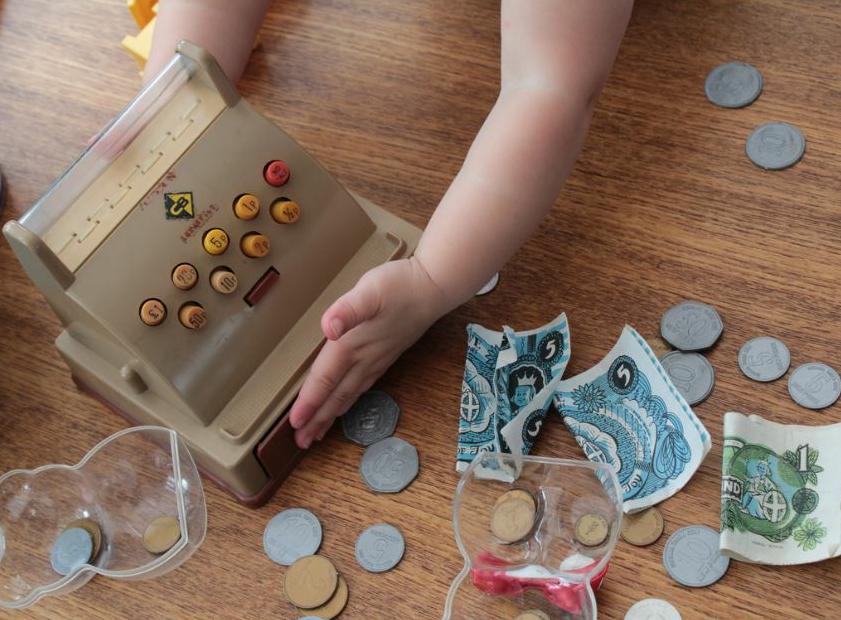A Child’s Right to Savings
MUMBAI, India, April 14, 2017 (Maximpact.com News) – Gone are the days when the only financial education a child would receive was a piggy bank with a coin or two tucked through the slot and parental instructions to save his or her loose change. Now young people, even street kids, can have access to e-banking thanks to an award-winning social entrepreneur from India.
On April 2, the nonprofit Child & Youth Finance International (CYFI) together with Mastercard launched a unique comprehensive guide on banking and payment products for minors.
The guide, “Safer Payment Products for Minors,” identifies recommended practices on how Financial Service Providers can develop age-appropriate payment products for minors.
These products are intended to promote responsible spending and financial decision making while incorporating functions that allow for parental guidance to help children achieve financial autonomy.

Jeroo Billimoria of India is an award-winning advocate for youth financial independence. (Photo courtesy Child and Youth Finance International) Posted for media use
Today’s children can look to social entrepreneur Jeroo Billimoria as an inspiration for their own effective ways of handling of money.
In 2011, Billimoria founded Child and Youth Finance International, which unites policymakers and experts from private, public and civil society sectors to elevate the financial rights of children to a higher priority on national and international agendas.
“Worldwide, young people are more tech-savvy and digitally included than ever before, yet many lack the much needed financial know-how to make wise decisions about money later in life,” wrote Billimoria in “Huffington Post.”
“The fast-growing world of financial technology offers many opportunities; building the tools needed to successfully include children and youth in banking services, the chance to gain expertise from the private sector, and the impetus to create regulations around the financial needs of youth,” she wrote.
Born in 1965 in Mumbai, India to a family of professionals, Billimoria has dedicated herself to support of the economic rights of children.
She began working with street children in Mumbai, many of whom had run away from home and had no one to depend upon except themselves.
Answering their calls through helplines she established, she realized that many of these children demonstrated the attributes of good entrepreneurs – they were brave, smart, innovative and creative. But they were not integrated into the normal financial system and so were financially vulnerable.
Billimoria decided to make her vision of children having and managing their own savings accounts a reality.
Starting with just her own telephone number and her personal savings, Billimoria founded Child Helpline International, an organization that now helps millions of street children each year in countries around the world.
Billimoria really broke through when she created a fun-loving and mischievous cartoon character called Aflatoun as a fireball from outer space. Aflatoun inspires children to explore and engage with the world around them through activities, stories and games, and teaches them about their rights, and about money.
She developed a curriculum for teaching children to take responsibility for themselves, to plan for a better life, and to save money through school-based Aflatoun Clubs.
Aflatoun educates children about their rights and responsibilities. It equips them with skills to save and manage money, and set up their own social and financial enterprises.
In 2006, one year after she created Aflatoun, Billimoria received the Skoll Award for Social Entrepreneurship, a $1.25 million, three-year core support investment to scale her work and increase her impact.
Today, Aflatoun is an international network of nongovernmental organizations based in Amsterdam. Currently, more than 2.3 million children receive social and financial education each year through more than 27,000 education centers in 109 countries.
Forty percent of students enrolled in the Aflatoun program save small amounts of money each week, building savings that average €2.23 euros per child per year – €2.76 million total.
To date, Aflatoun students have launched 5,177 social enterprises and 11,449 financial enterprises.
In 2012, Billimoria stepped down as executive director of Aflatoun to found another new venture – Child and Youth Finance International.
This global advocacy organization is the one partnering with Mastercard to create the guide for financial service providers, “Safer Payment Products for Minors.”
Walt Macnee, Mastercard Vice Chairman says, “Today’s minors are the adults of tomorrow. As they grow up, we need to ensure that they are prepared to fully participate in the formal and increasingly digital economy. By ensuring that the tools and products that they are given are age-appropriate, we contribute to that preparation.“
Many of the tips for children in the minors’ guide are the same that people of any age should abide by.
For instance, the guide advises young people to keep their bank card in a safe place, write strong passwords and don’t share them, and research online websites and companies and read customer reviews before buying anything.
Another tip: “Trust your instincts – if you have any doubts about a website, do not purchase anything from it; there are
many other online stores to shop from.”
And to avoid fraud, “Be aware of your surroundings when talking about your account. Check who can overhear you or see what you’re doing when using a public wifi hotspot.“
The guide was created by Mastercard, Child & Youth Finance International, ParentPay, nimbl and Mirador Digital, with contributions from a range of organizations in the financial sector.
Speaking to financial services providers, the guide advises, “The minor’s needs, interests and levels of comprehension would form the basis for all product communications.“
Parent-targeted initiatives and minor-friendly communication are both emphasized. The guide suggests that annual fees and monthly bills would be sent to the parent, but communications from the financial services provider can encourage that they are reviewed regularly with the child.
Billimoria gives an example of minor-centered financial service happening right now in Uganda, where the Private Education Development Network has collaborated with the software development company Oratec Ltd. to create an automated school deposit and withdrawal management information system to promote savings among students.
“Offering the opportunity for kids to understand how e-banking works by opening and managing their own account, the system also enables financial service providers to equip students with banking skills and fund financial inclusion through mobile money initiatives,” she wrote.
Billimoria warns that money saved in a piggy bank could be stolen or lost in a fire or flood.
She says everyone at Child and Youth Finance International believes that young people have a right to safe and appropriate child and youth friendly savings accounts at formal financial institutions.
Featured Image: Child plays at running a shop, June 2015, United Kingdom (Photo by Sarah Joy) Creative commons license via Flickr
Create finance projects through Maximpact’s Advisory and discover project services for all types of business and organizations. Find the right expertise for your finance projects through Maximpact consulting network. Contact us at info(@)maximpact.com and tell us what you need.

